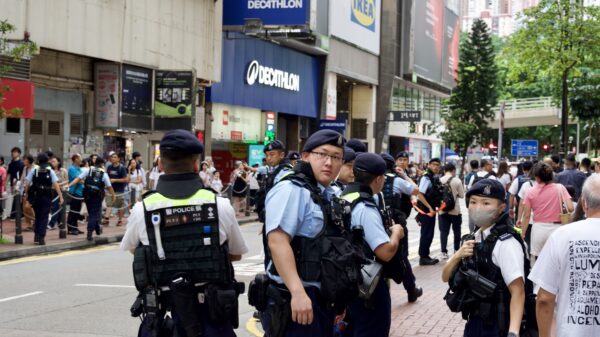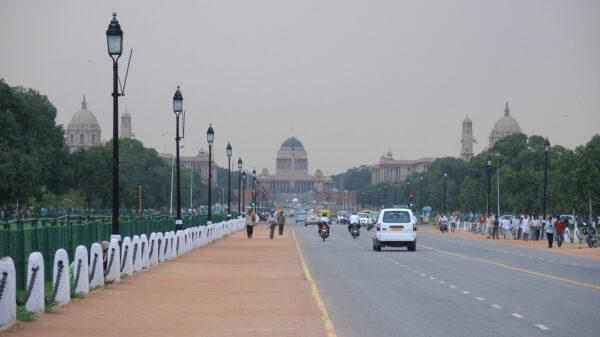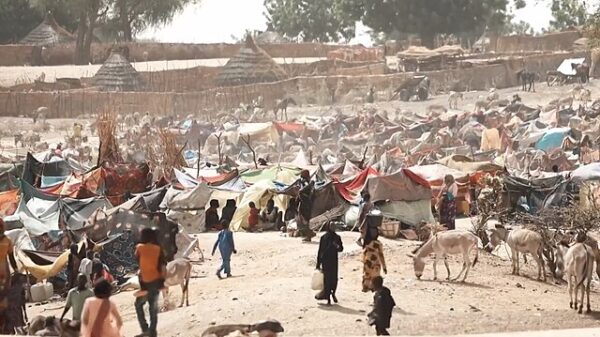Culture Editor Alex Blank on the International Booker Prize 2021 shortlist and the themes this year’s nominees share.
The International Booker Prize is an annual literary award that celebrates “the best novel of the year written in English and published in the UK and Irelandâ€. The 2021 shortlist includes: “At Night All Blood Is Black” by David Diop, translated by Anna Moschovakis from French; “The Dangers of Smoking in Bed” by Mariana EnrÃquez, trans. by Megan McDowell from Spanish; “When We Cease to Understand the World” by BenjamÃn Labatut, trans. by Adrian Nathan West from Spanish; “In Memory of Memory” by Maria Stepanova, trans. by Sasha Dugdale from Russian; “The War of the Poor” by Éric Vuillard, trans. by Mark Polizzotti from French; and “The Employees” by Olga Ravn, trans. by Martin Aitken from Danish.
What primarily binds all of this year’s chosen texts is the heterogeneity of form, and the fact that there is not a single traditional contemporary novel shortlisted. The work that comes closest to it might be Diop’s book, a historical novel with a modernist bent in terms of style, or EnrÃquez’ short story collection, while other works blur fact and fiction more explicitly, hinging on memoir, essays, creative nonfiction, historical document, and more.
All novels travel in time: most revisit the past, while Ravn’s work looks to the future. Even if the book takes place in the present, as EnrÃquez’ stories do, her entire collection is continuously haunted by literal and figurative ghosts of Argentina’s past. In our divided and infected times, the shortlist seems to encourage us to look into the past too, to examine various power dynamics within their individual and collective histories, as well as face the consequences of what we have done. As Stepanova said in an interview: “There’s an increasingly palpable hunger for contact with the past which grows stronger as the present becomes less acceptable to usâ€.
When travelling to the past, all stories portray different sides of war: the literal war (in Diop or Vuillard), the dehumanisation and trauma caused by it (Diop), an intergenerational memory of it (Stepanova), the dangers of science and its impact on war (Labatut), or wars revolving around faith and religion (Vuillard). But the other side of war is love, which is also pertinent in the books – the subtitle of Stepanova’s work is even called “A Romance†– love for family, for science, for friendship, for each other, and, of course, for writing. This love is often lost or layered, but it’s there nonetheless.
What’s also significant are the doubles depicted in many of the novels. In Diop’s text, the protagonist, Alfa, says: “each thing carries its opposite within (…) each thing is double,†and by the end of the book, it is implied that he merges into one with his best friend. In EnrÃquez’ stories, there is a perpetual doubling around the living and the dead, the haunted and the haunting. In Labatut, there are the double effects of modern inventions, such as hydrogen cyanide, which is linked to both artistic invention and mass murder. In Vuillard, the doubles present binaries between the rich and the poor, the God of luxury and the “God of beggarsâ€.
The only book I haven’t managed to read, I admit, was Olga Ravn’s “The Employees”. I could not find any eBooks, and I failed to purchase it from online bookstores on short notice. I find it interesting that the only futuristic novel on the list is so scarcely available, as if it is the universe telling us that we should not put all of our efforts and attention into the future, but rather to step back and look into the past. Of course I’m seeing too much into things, but I think there is a lesson to be learned here. The past, though never fully knowable through memory – which Stepanova’s books beautifully theorises and reflects upon – and impossible to relive or fix, is also the closest thing we have to examine and learn from.
If the award goes to the best work of fiction, my bet would be on David Diop’s novel, “At Night All Blood Is Black”, but considering the sheer scope and the seamless merging of scientific invention with the immersive storytelling of BenjamÃn Labatut’s “When We Cease to Understand the World”, I think his work is likely to win, too. I also cannot help but appreciate the warmth, tenderness and scope of Stepanova’s writing – which reminds me of Olga Tokarczuk who won the International Booker Prize in 2018 – and her meditation on the past, family and memory, in conversation with so many other writers and thinkers, is also a strong nominee. These are only my personal speculations; the winner will be announced on 2 June 2021, and you can read more into the prize here.














